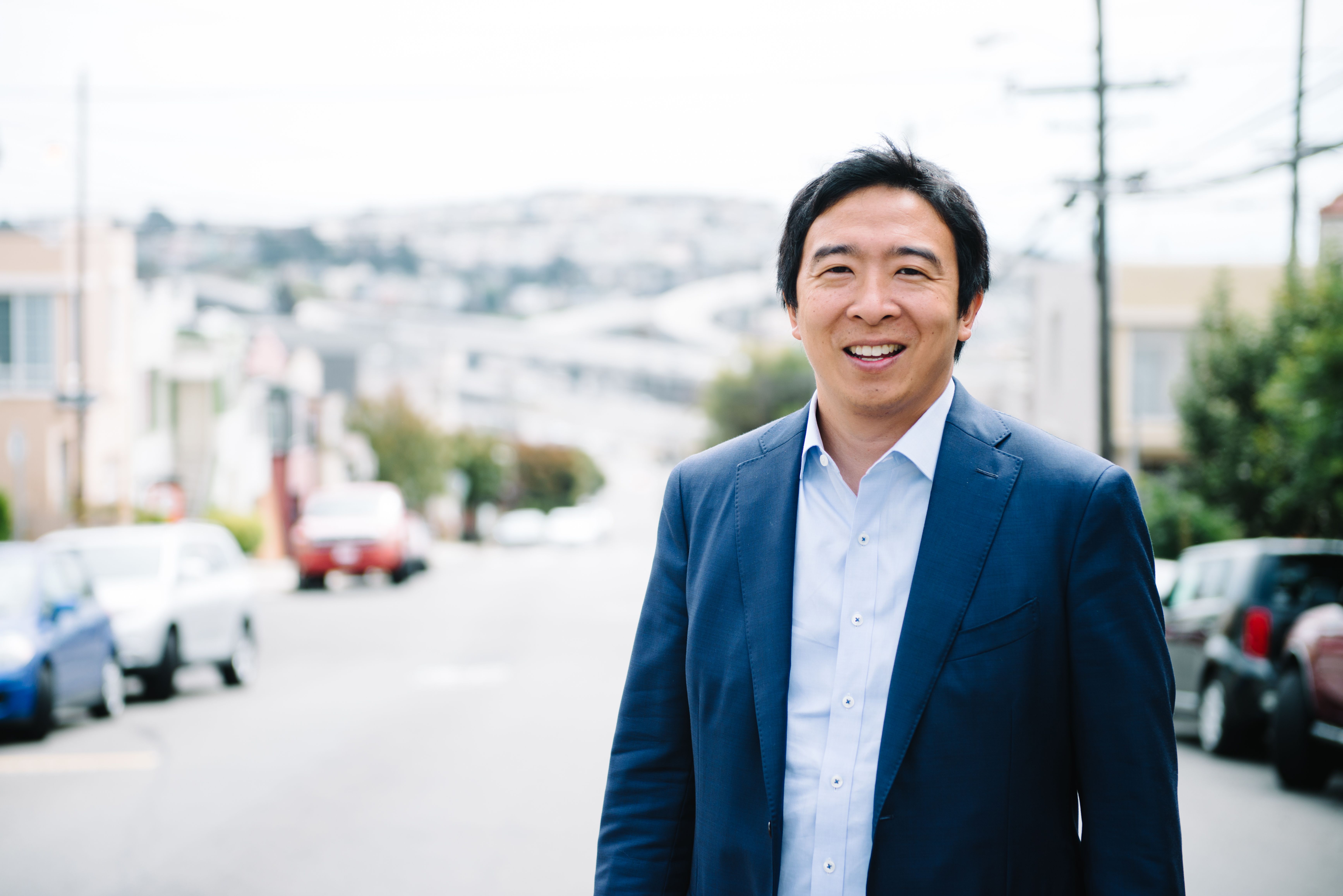Andrew Yang ’96 is an American entrepreneur and the Founder of Venture for America. For two decades, he has worked with startups and early-stage growth companies, and he is the author of two books: Smart People Should Build Things and The War on Normal People. Yang will be running for president as a Democrat in 2020 on a platform which includes the implementation of a universal basic income (UBI) for all American citizens between the ages of 18 and 64.
Glenn Yu: Why are you running for President?
Andrew Yang: I spent the last six and a half years as the founder and CEO of an organization called Venture for America which helped to create several thousand jobs in Detroit, Saint Louis, Baltimore, Cleveland, Birmingham, and other cities all around the country. While doing that work, I realized that we had automated away four million manufacturing jobs in the Midwest and South. Unfortunately, my friends in Silicon Valley know that we are about to do the same thing we did to manufacturing jobs to retail, customer service, truck driving, fast food, and other industries in the coming months and years. When I realized that no other political figure was going to raise the alarm to make the case that Donald Trump is a symptom of the fact that we are eliminating the most common jobs in the economy, I decided to run for president to present meaningful solutions to the Americans who have been discarded by our system.
GY: The Universal Basic Income isn’t a jobs program. Instead, it seems that the UBI is meant to combat the fact that many individuals do not and will not have employment. What do you think these people will do instead of working?
AY: By putting a thousand dollars a month into the hands of Americans, 57 percent of whom cannot pay an unexpected bill of $500 right now, we would supercharge the consumer economy and rejuvenate Main Street businesses all around the country. We would grow the economy by about $2 trillion and create 4 million jobs as people have more money to spend in their communities. We would improve graduation rates, mental health, and children’s nutrition and health as well as reduce stress levels and hospital visits. I agree with you that work is essential to the human experience, and I believe a universal basic income would encourage people to do work that people value intrinsically. Thinking that it will somehow eliminate the incentive to work is to think far, far too little about Americans and human beings in general.
GY: But it seems as though in a lot of rural, poor, white communities, there exists a culture of poverty and despair that stems from a lack of work and opportunity. Is throwing money at these communities a meaningful solution?
AY: The universal basic income doesn’t solve everyone’s problems overnight. But what it does do is removes an existential dread: If they lose their jobs and they go home, they’re not thinking about how they’re going to survive and put a roof over their head. The other thing is that, in these rural communities you’re talking about, many people are filing for disability, which unfortunately discourages functioning. If you look at the stats, the rate at which people get off of long-term disability voluntarily is basically 0 percent, because no one is going to risk a lifetime of cash benefits for some tenuous part time job that might disappear at any second.
Donald Trump became president partly because he diagnosed a lot of the essential problems in America today. My solutions are the opposite of his. While he suggested that we should freeze time, build a wall, and bring the jobs back, I believe that we need to turn the clock forward, accelerate the government and society, and start distributing the gains from new technologies to the American people very quickly.

YANG GANG